German Concentration Camps Factual Survey
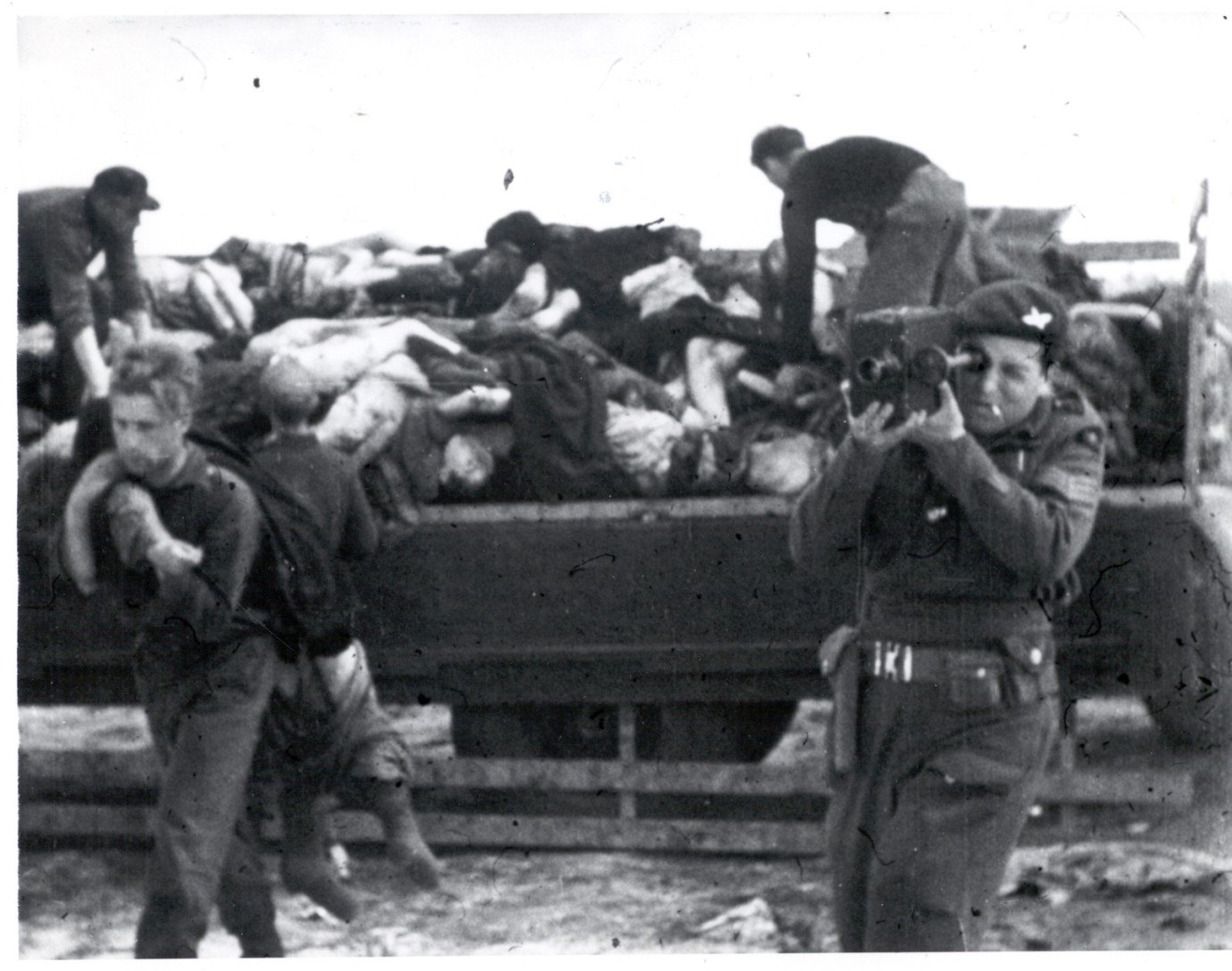

Allied Forces Photography Unit Cameraman Sgt Mike Lewis filming at Belsen 18-20 April 1945
German Concentration Camps Factual Survey
GBR 2014, Forum
© IWM FLM 1232, Imperial War Museums
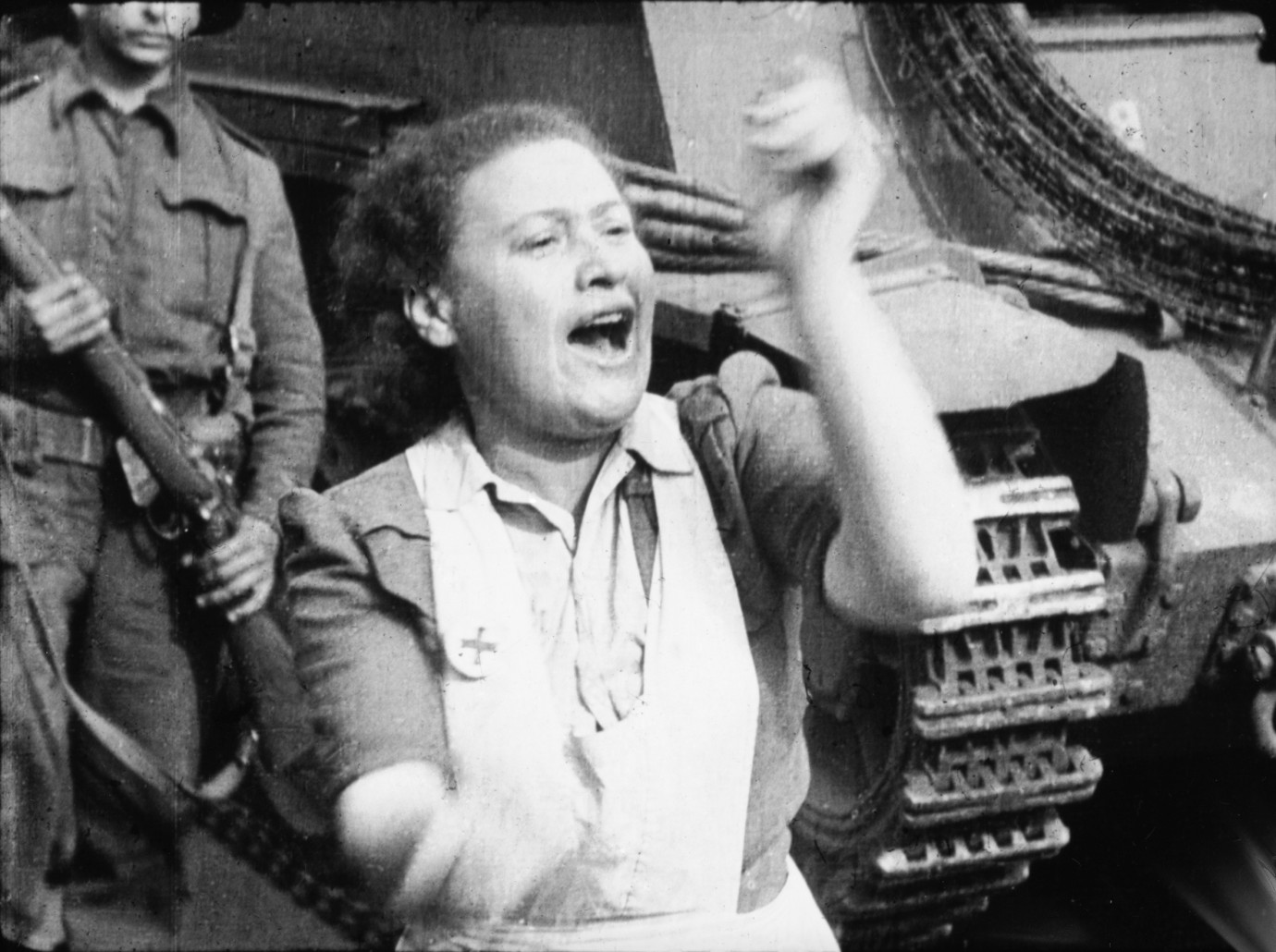
'Ex-prisoner claps her approval of strictness shown by Tommies' taken by Sgt Lewis, 16 April 1945
German Concentration Camps Factual Survey
GBR 2014, Forum
© IWM HU 38069
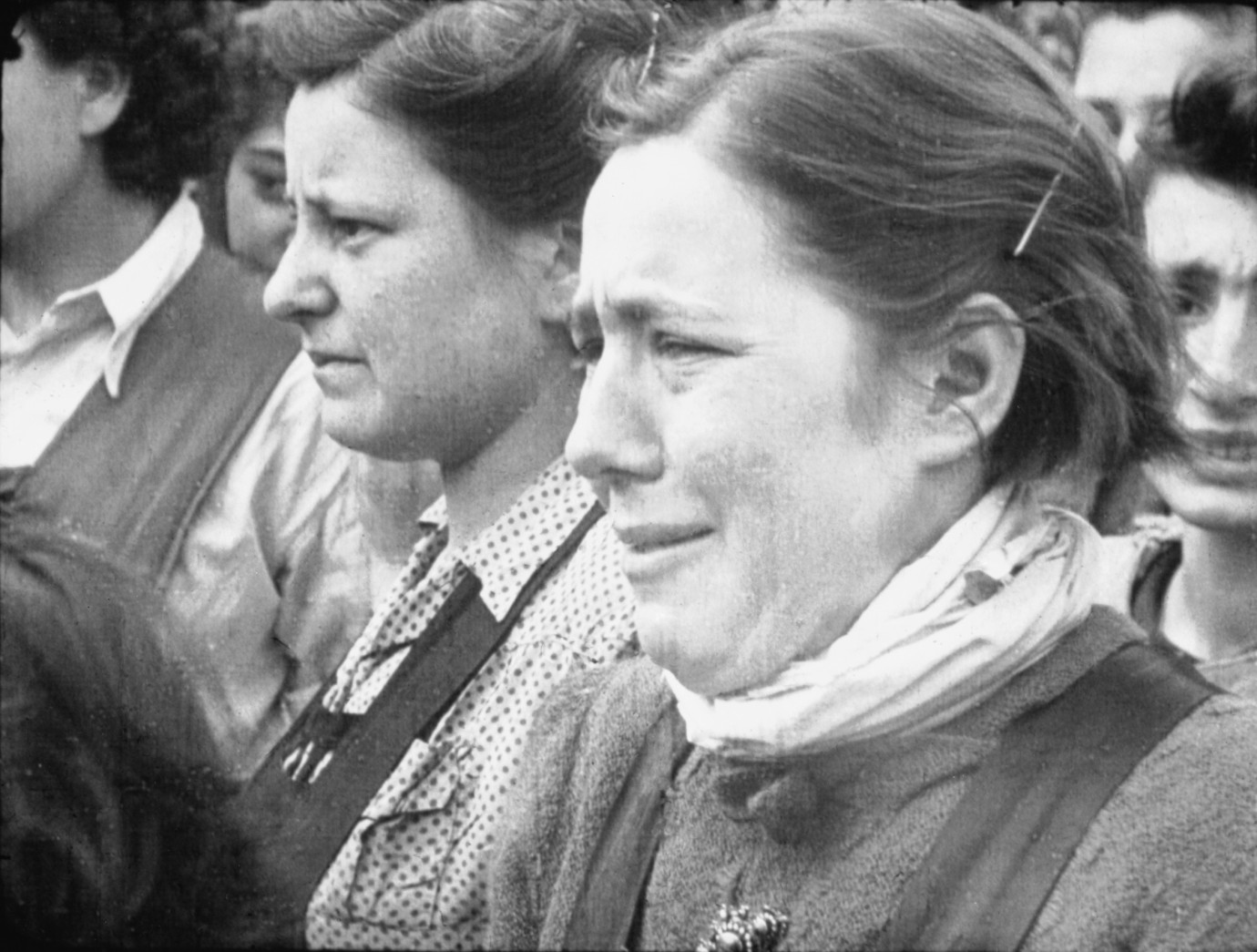
Reaction of a Girl' taken by Sgt Lewis, 17 April 1945
German Concentration Camps Factual Survey
GBR 2014, Forum
© IWM Film 10012 Caption taken from original shot sheet
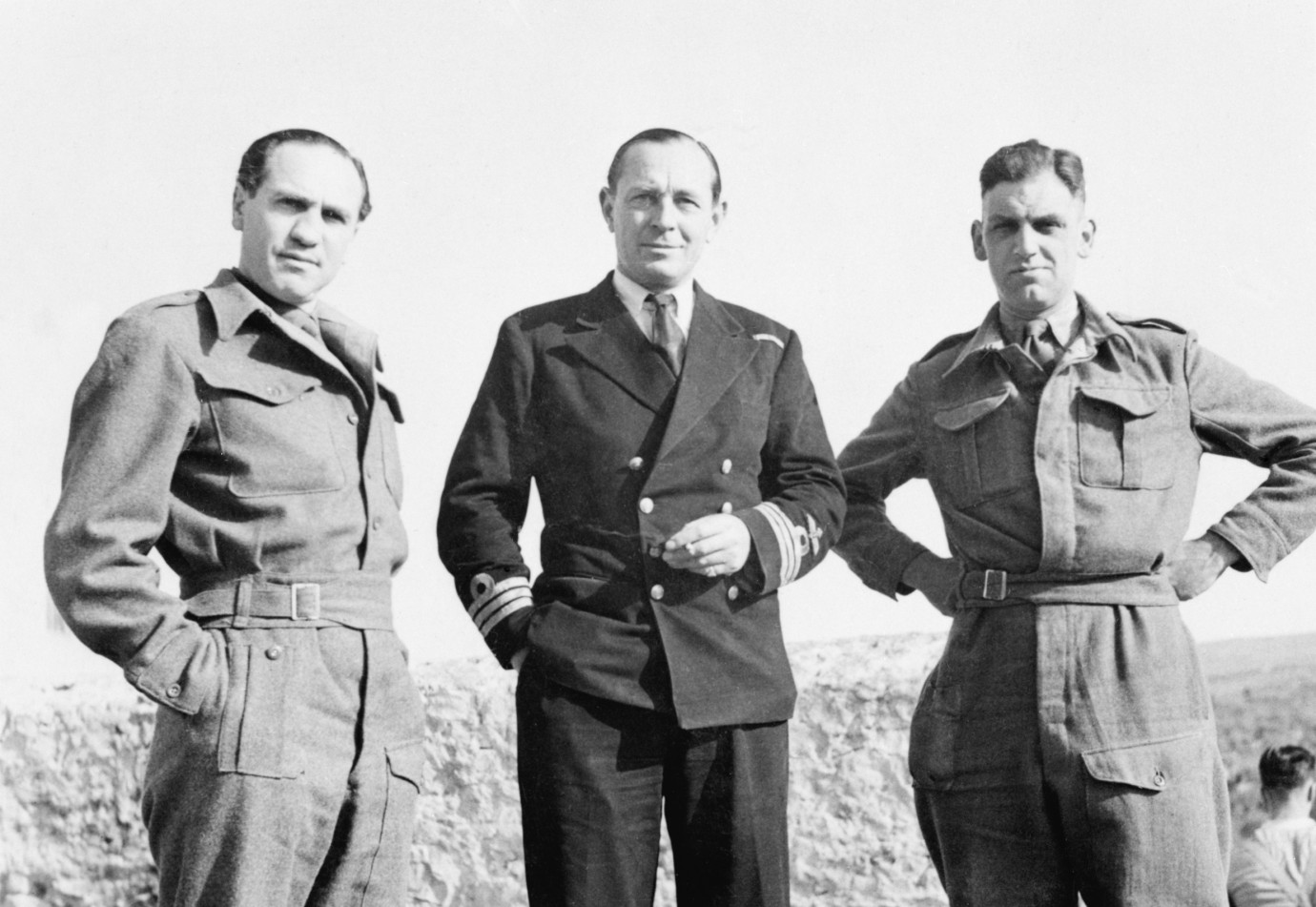
Sidney Bernstein, Lt Cdr Anthony Kimmins and Major Hugh Stewart during a visit to North Africa in 1943
German Concentration Camps Factual Survey
GBR 2014, Forum
© IWM Film 1232 Caption taken from original shot sheet
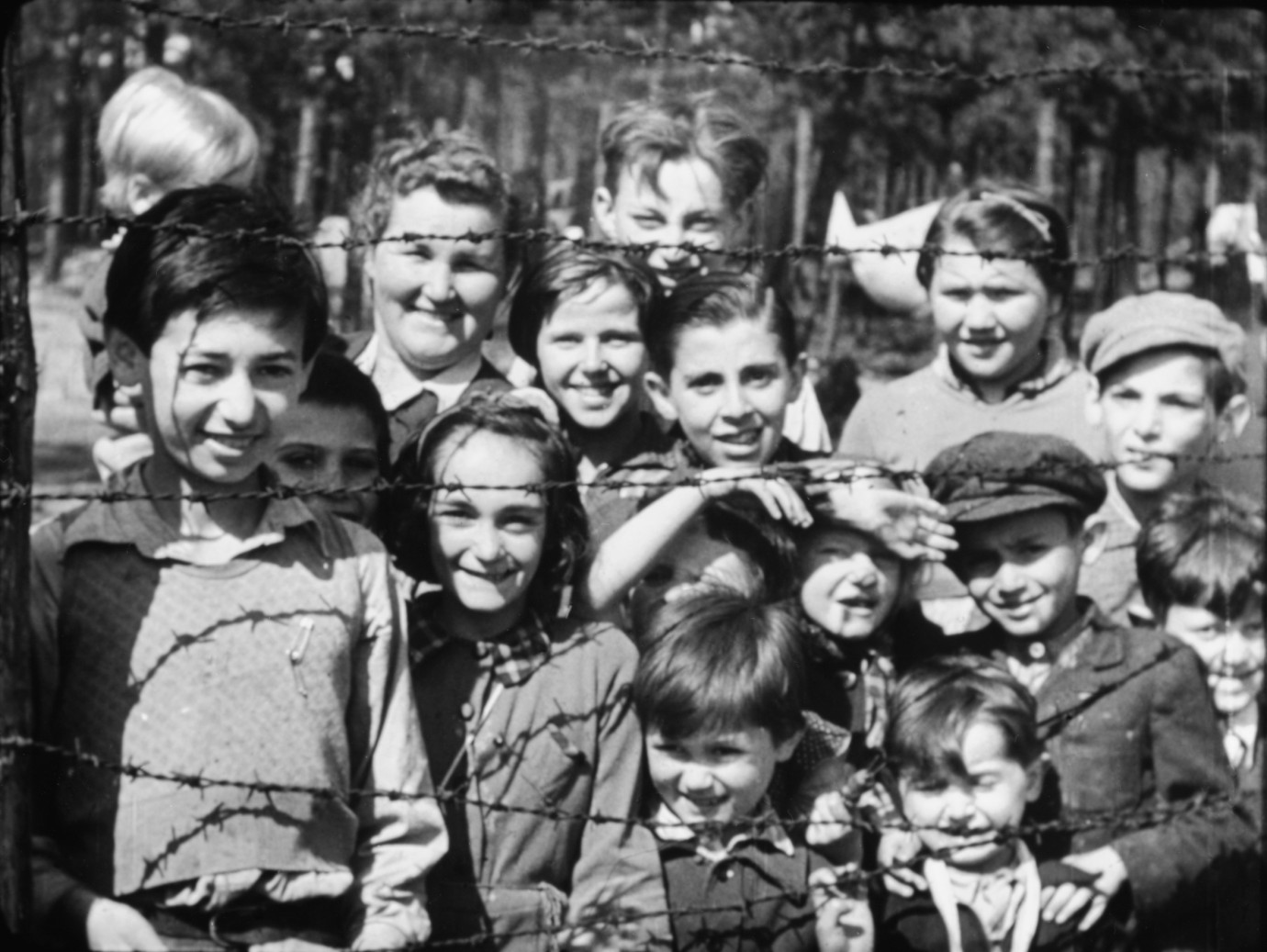
Smiling children through barbed wire' taken by Sgt Lewis, 19-20 April1945
German Concentration Camps Factual Survey
GBR 2014, Forum
© IWM Film 1001 Caption taken from original shot sheet
In the end, it turned out differently. Even Alfred Hitchcock’s involvement was unable to prevent this ambitious work from disappearing into the archives in late 1945. A fragment entitled Memory of the Camps was presented at the Forum in 1984 and shown on US television a year later. This milestone in documentary film has been reconstructed and extended and can now finally be viewed in its intended form.